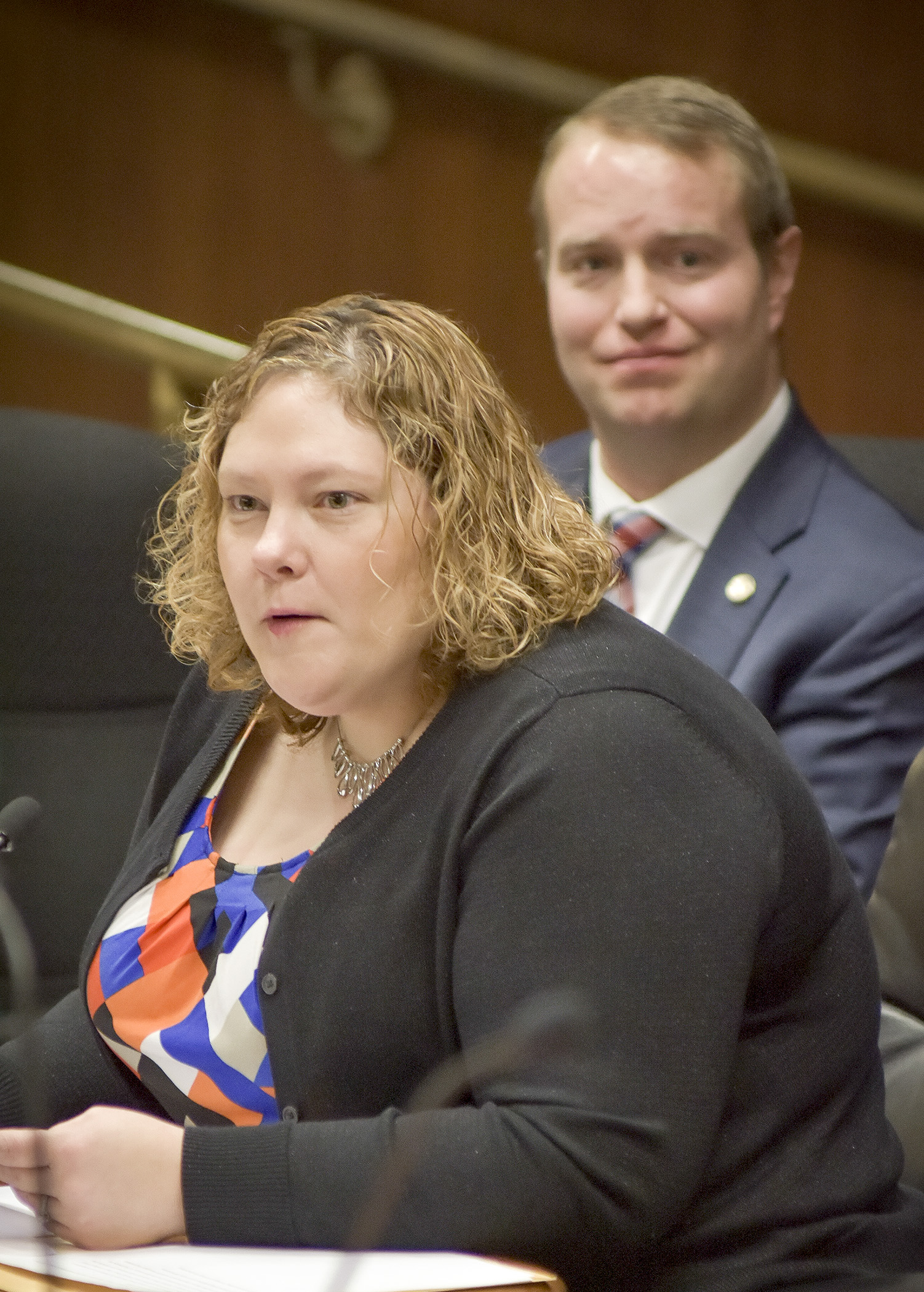Palliative care advisory committee would look to improve awareness, access
For people with serious illnesses, symptoms ranging from pain and nausea to depression and anxiety can limit their ability to do the things they love. Palliative care focuses on alleviating a patients’ symptoms and helping them create treatment plans that allow them to live more fully.
But many people conflate palliative care with hospice care or don’t have access to programs, Rep. Nick Zerwas (R-Elk River) told the House Subcommittee on Aging and Long-Term Care Wednesday.
 Pam Fortem, a cancer caregiver to her father, testifies before the House Subcommittee on Aging and Long-Term Care Feb. 8 in support of a bill sponsored by Rep. Nick Zerwas, right, that would create a palliative care advisory committee. Photo by Andrew VonBank
Pam Fortem, a cancer caregiver to her father, testifies before the House Subcommittee on Aging and Long-Term Care Feb. 8 in support of a bill sponsored by Rep. Nick Zerwas, right, that would create a palliative care advisory committee. Photo by Andrew VonBankHis bill, HF345, would create a Palliative Care Advisory Committee to look for solutions and advise the health commissioner on related initiatives. It was approved and referred to the House Health and Human Services Reform Committee. The companion, SF112, sponsored by Sen. Karin Housley (R-St. Marys Point), awaits action by Senate State Government Finance and Policy and Elections Committee.
“The goal is always to improve quality of life by treating the whole person as well as the disease,” said Dr. Eric Anderson, a palliative medicine practitioner and late-life supportive care researcher with Allina Health.
Zerwas personally experienced the impact of palliative care when he was 15 years old.
After spending six months in an intensive care unit waiting for a heart donation that his body wouldn’t reject, undergoing chemotherapy and losing 30 pounds, he was unable to get out of bed. But then his care team shifted focus, he said.
They encouraged him to go home with his family, where he was able to attend two hours of class daily and receive treatment. A few months later, “his miracle” manifested as a life-saving experimental heart surgery.
“Palliative care let me live,” Zerwas said. “When everyone else in the world was saying that I was dying, palliative care let me live.”
Palliative care can benefit people with serious illnesses at any stage of their treatment. In addition to helping patients tolerate treatment, it can lead to shorter and more infrequent hospital stays and ease the burden put on patients’ families by helping the patient to make informed decisions about their treatment ahead of time, Anderson said.
For Red Wing nurse Pam Fontem, palliative care helped her father “create a roadmap” after he was diagnosed with pancreatic cancer. He was able to receive care at home, avoid hospitalizations, limit emergency room visits and do the things he loved, she said.
“When things got tough, I did not have to make the decisions. He had already made all of them,” Fontem said. “Palliative care allowed my dad to fight cancer with dignity and not pain, and allowed me to be a daughter rather than a nurse.”
Related Articles
Search Session Daily
Advanced Search OptionsPriority Dailies
Legislative leaders set 2026 committee deadlines
By Lisa Kaczke Legislative leaders on Tuesday officially set the timeline for getting bills through the committee process during the upcoming 2026 session.
Here are the three deadlines for...
Legislative leaders on Tuesday officially set the timeline for getting bills through the committee process during the upcoming 2026 session.
Here are the three deadlines for...